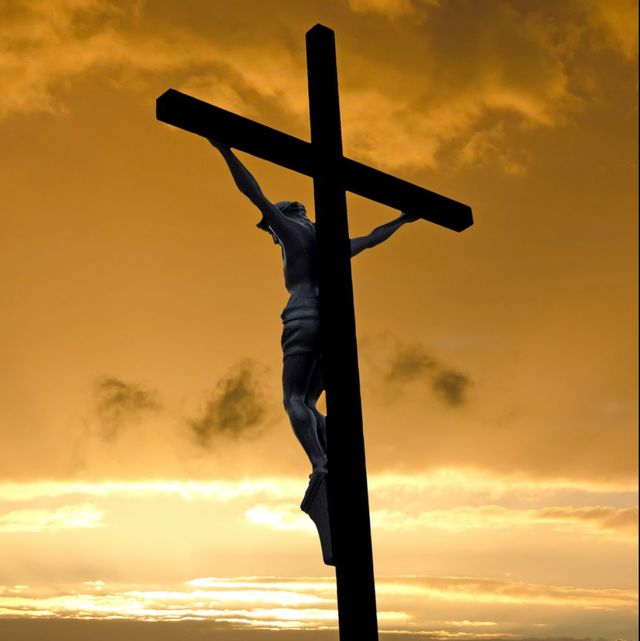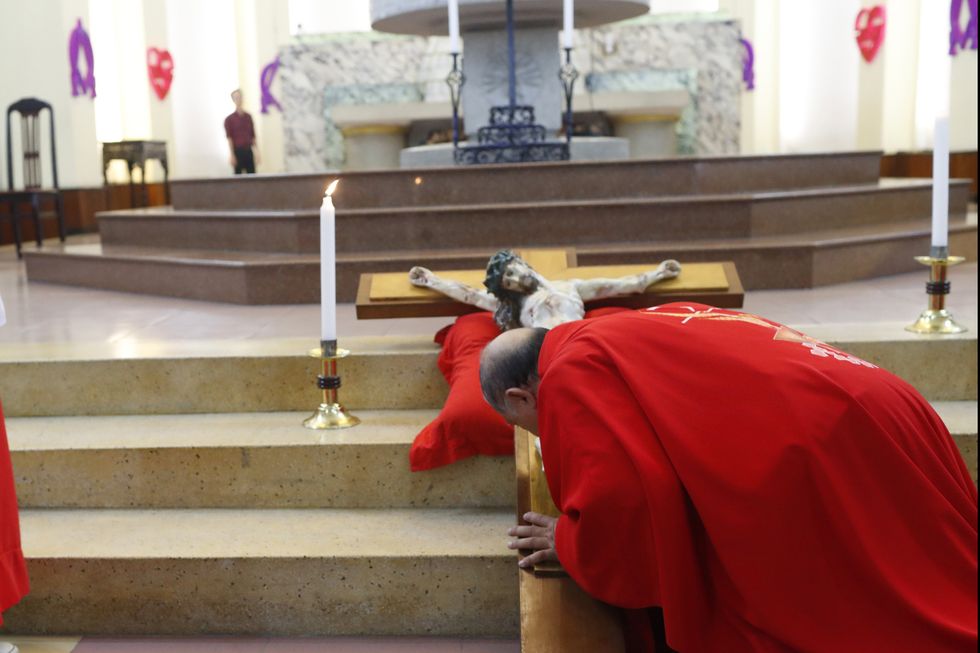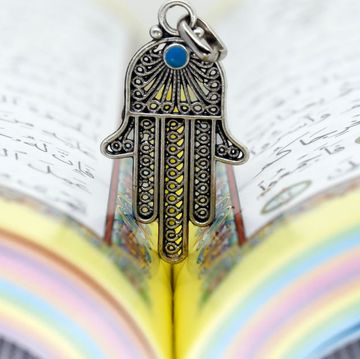You may wonder why the Christian holiday is called "Good Friday" rather than "Bad Friday," considering the event commemorates Jesus' suffering and death at the cross. But to many Christians, the holiday signifies a turning point for creation, in which Jesus sacrificed his own life to absolve humanity of their sins.
According to Mark 15:38, sin had separated people from God, but at the moment of Christ's death, the veil that separated humanity from the presence of God lifted. Two days later on Easter Sunday, Jesus proved his victory over sin and death by rising from the dead.
Today, Christian churches hold mass services or liturgies around noon or 3 PM on Good Friday, which is the time many believe Jesus was hung on the cross. Christians also continue to observe their Lenten fast practices on Good Friday (generally, fasting ends on the Saturday before Easter Sunday).
Here's exactly when Good Friday will take place, and why Christians observe this holiday.
So when exactly is Good Friday this year?
Each year, Good Friday lands on the Friday before the liturgical observance of Easter Sunday, which varies year-by-year. According to CBC, Easter is always celebrated on the first Sunday after the first full moon on or after the Spring equinox.
This year, Easter is much later than usual, falling on April 21, 2019. Consequently, Good Friday will be on April 10, 2020.
How did Good Friday get its name?
Good Friday was not always celebrated on a Friday. According to Britannica, Jesus' Last Supper, Death, and Resurrection were observed the night before Easter Sunday in one single commemoration. Since then, Christians commemorate Holy Thursday, Good Friday, and Easter Sunday separately.
In English-native countries, the holiday is known as "Good Friday," though in Greek and German liturgy, the term translates as "Great Friday" and "Sorrowful Friday," respectively.














